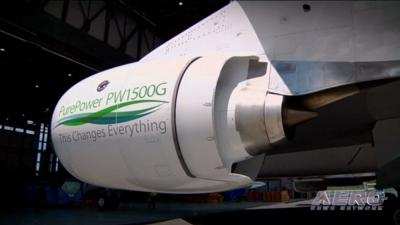Sat, Jan 07, 2023
AD 2022-27-04 Prompted By An Uncommanded Dual Engine Shutdown Upon Landing
The FAA is adopting a new airworthiness directive (AD) for all Pratt & Whitney (PW) PW1519G, PW1521G, PW1521G-3, PW1521GA, PW1524G, PW1524G-3, PW1525G, and PW1525G-3 model turbofan engines.

This AD was prompted by an uncommanded dual engine shutdown upon landing, resulting in compromised braking capability due to the loss of engine power and hydraulic systems. This AD requires removal from service of certain electronic engine control (EEC) full authority digital engine control (FADEC) software versions and replacement with updated software. The FAA is issuing this AD to address the unsafe condition on these products. This AD is effective January 31, 2023.

Supplementary Information: The FAA issued a notice of proposed rulemaking (NPRM) to amend 14 CFR part 39 by adding an AD that would apply to all PW PW1519G, PW1521G, PW1521G-3, PW1521GA, PW1524G, PW1524G-3, PW1525G, and PW1525G-3 model turbofan engines. The NPRM published in the Federal Register on October 25, 2022 (87 FR 64397). The NPRM was prompted by a report that an airplane experienced an uncommanded dual engine shutdown upon landing, resulting in compromised braking capability due to the loss of engine power and hydraulic systems. A subsequent investigation determined that the sequence of the auto-throttle increasing throttle to maintain Mach number, immediately followed by pilot command to decrease throttle to idle, caused a transient disagreement between actual and commanded thrust. This disagreement triggered the thrust control malfunction (TCM) detection logic and resulted in dual engine shutdown once the weight on wheels signal was activated upon landing. The installed EEC FADEC software
version latches the fault and allows the engine to continue operation as commanded but shuts down the engine upon landing. The manufacturer identified the situations that could trigger the TCM logic erroneously and updated the EEC FADEC software. This software update makes corrective improvements to the TCM logic, including revised criteria for triggering the TCM logic and establishing criteria that permit the TCM logic to unlatch during flight. In the NPRM, the FAA proposed to require removal from service of certain EEC FADEC software versions and replacement with a software version eligible for installation. The FAA is issuing this AD to address the unsafe condition on these products.
More News
He Attempted To Restart The Engine Three Times. On The Third Restart Attempt, He Noticed That Flames Were Coming Out From The Right Wing Near The Fuel Cap Analysis: The pilot repor>[...]
Make Sure You NEVER Miss A New Story From Aero-News Network Do you ever feel like you never see posts from a certain person or page on Facebook or Instagram? Here’s how you c>[...]
From 2009 (YouTube Edition): Leading Air Show Performers Give Their Best Advice for Newcomers On December 6th through December 9th, the Paris Las Vegas Hotel hosted over 1,500 air >[...]
Aero Linx: NASA ASRS ASRS captures confidential reports, analyzes the resulting aviation safety data, and disseminates vital information to the aviation community. The ASRS is an i>[...]
“For our inaugural Pylon Racing Seminar in Roswell, we were thrilled to certify 60 pilots across our six closed-course pylon race classes. Not only did this year’s PRS >[...]
 NTSB Final Report: Rutan Long-EZ
NTSB Final Report: Rutan Long-EZ ANN FAQ: Turn On Post Notifications
ANN FAQ: Turn On Post Notifications Classic Aero-TV: ICAS Perspectives - Advice for New Air Show Performers
Classic Aero-TV: ICAS Perspectives - Advice for New Air Show Performers ANN's Daily Aero-Linx (06.28.25)
ANN's Daily Aero-Linx (06.28.25) Aero-News: Quote of the Day (06.28.25)
Aero-News: Quote of the Day (06.28.25)



